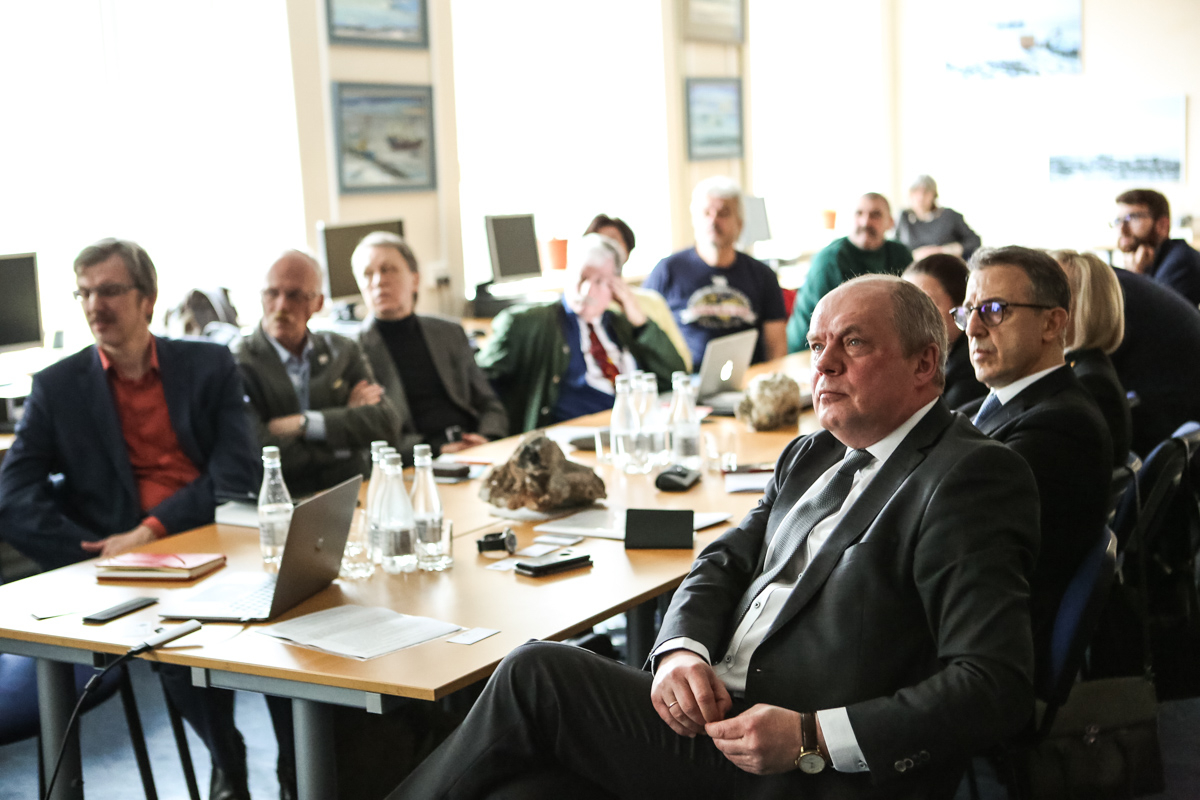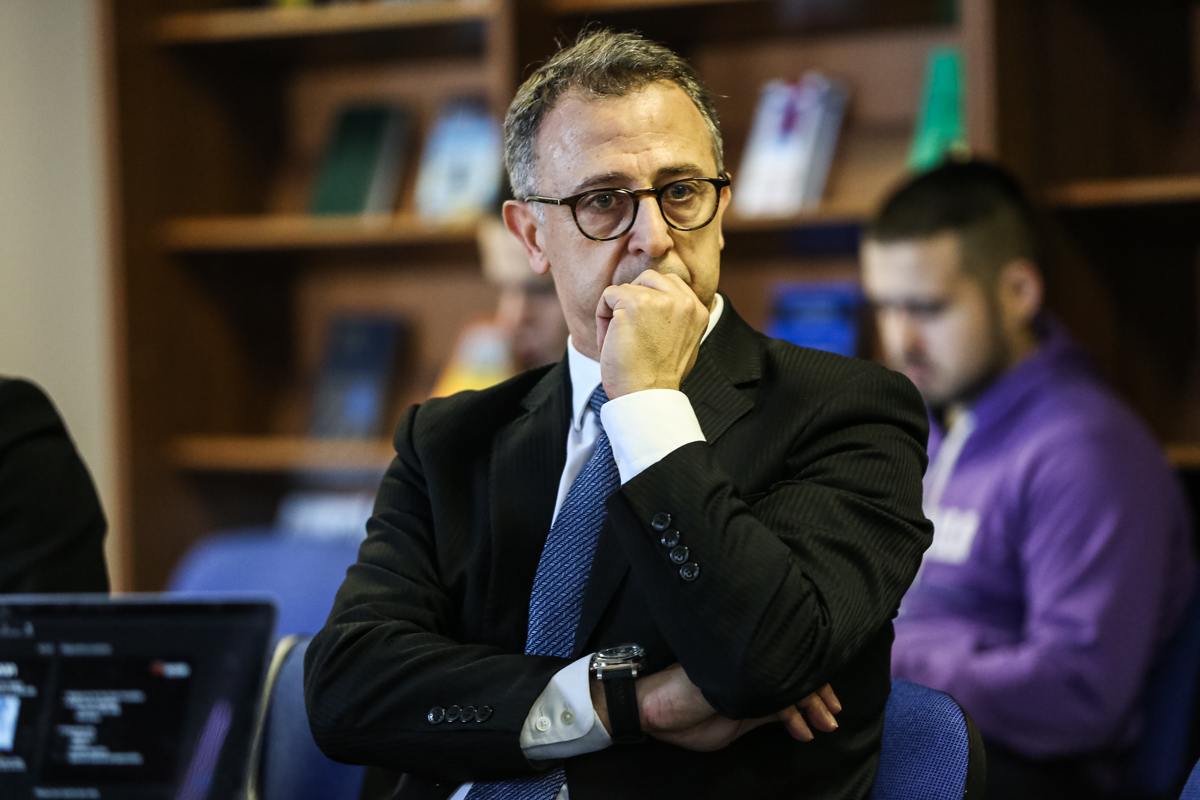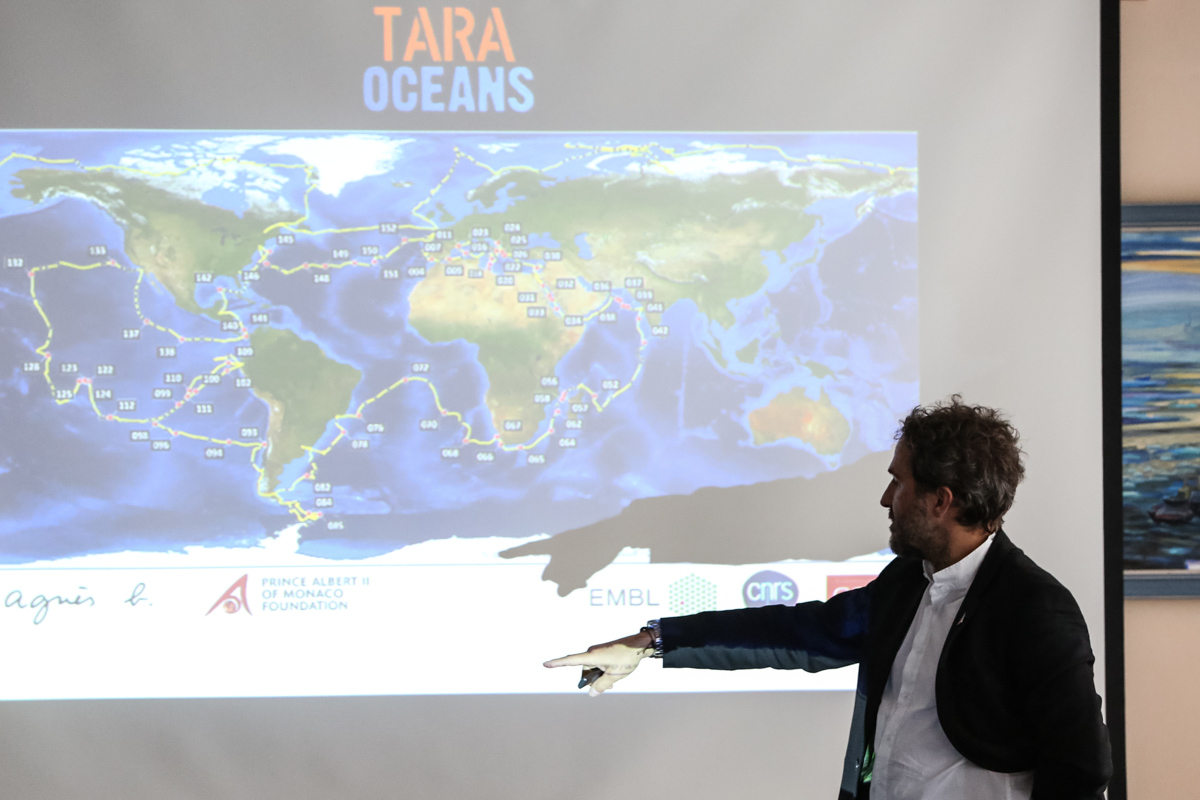Experts from St Petersburg University and the Tara Ocean Foundation discuss the future of Arctic exploration
A panel discussion ‘Floating platforms in the Arctic: the future of Polar explorations’ has been held at St Petersburg University. During the discussion, the French foundation Tara Ocean presented a floating vessel designed for uninterrupted exploration of the Arctic region.
Platforms that are frozen in Arctic sea ice and floating with it are a new step in the history of exploration of the North Pole region. They will allow scientists to explore the Arctic irrelevant of the ice conditions. The development of new hi-tech equipment for relocating Polar scientists is being carried out in a range of countries including Russia. Tara Ocean Executive Director Romain Troublé spoke about the project of the foundation. According to Sergey Aplonov, Director of the Arctic Research Centre at St Petersburg University, the members of the panel discussion had a possibility to compare the Russian project and the development of their French colleagues, as well as define the directions of their future mutual research.
I do believe that the Arctic is immense and boundless, everybody can find enough possibilities to carry out research there.
Sergey Aplonov, Director of the Arctic Research Centre at St Petersburg University
Also, he pointed out that holding such meetings at the University is very important. ‘St Petersburg University has long become a traditional venue where Arctic researchers of different areas gather for discussions: oceanologists, geologist, biologists, sociologists and economists. Every year our experts take part in polar expeditions and are ready to share their experience with their colleagues as well as learn from them,’ Sergey Aplonov underlined.
During the presentation, Romain Troublé spoke about the main lines of research of the Tara Ocean Foundation, which is the first non-governmental organisation in France to carry out major studies of the World ocean in the perspective of climate change and its impact on sea ecosystems and biodiversity. In 2006, the Foundation organised an expedition on the research schooner Tara. Unique data was collected on the temperature of air and water, atmospheric pressure and salinity of the Arctic Ocean during the 2-year drift. Tara Ocean has successfully organised 11 expeditions so far.
Today, the Foundation is working on developing a floating vessel that would combine the functions of a research observatory and analytical laboratory. It will be possible to study the nature of the Arctic all year round.
After the presentation an expert open forum panel discussion took place. The participants included: Dr Abdo Malak, Counsellor for Science and Technology with the Embassy of France in the Russian Federation; and scientists from St Petersburg University and other universities and scientific centres of St Petersburg, who work in the field of Arctic research.




